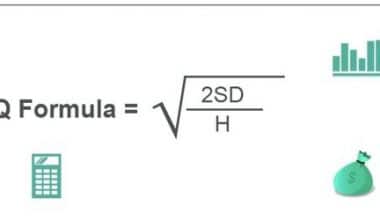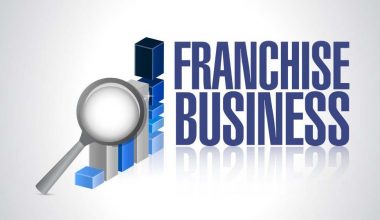Obtaining an Employer Identification Number (EIN) can be a valuable asset for any business, irrespective of whether it is mandatory for them to have one. Acquiring an Employer Identification Number (EIN) can provide many advantages for your business. These benefits include simplified tax filing procedures, the ability to recruit employees, and the establishment of business credits. In this article, you will discover the essential details about the sole proprietorship EIN, including its number and the IRS sole proprietorship EIN application. Now, it’s time to begin!
Overview
The federal employer identification number, commonly known as the EIN, is a unique identifier assigned to businesses for tax purposes. The Internal Revenue Service assigns a unique nine-digit number to individuals for the specific purpose of filing taxes. It is crucial for corporations, limited liability companies, and other business entities to utilize Employer Identification Numbers (EINs) due to their inherent significance. In contrast, sole proprietors have the option to utilize their social security numbers for business purposes. Moreso, in certain cases, a sole proprietor may require an EIN. In some cases, proprietors may find it advantageous to obtain an EIN, even if it is not strictly necessary.
What is an Employer Identification Number (EIN)?
Employer identification number serves as a crucial identifier for businesses in the eyes of the government. Its primary purpose is to facilitate the taxation process. The business equivalent of an individual’s Social Security Number (SSN) is like a unique identifier. So, if you are a sole proprietor, you do not need to obtain an Employer Identification Number (EIN) unless you have employees working for you. Also, if you are the sole proprietor of your business, you do not need an Employer Identification Number (EIN).
Buying a business, inheriting one, starting a partnership, and more require an EIN. Hence, without an EIN, these activities may not be possible. Obtaining an Employer Identification Number (EIN) may be a wise decision for a sole proprietor, even if it is not mandatory. This is due to the fact that the process of acquiring an EIN is expeditious and straightforward through the Internal Revenue Service’s website.
Sole Proprietorship EIN Application
The Internal Revenue Service provides a complimentary service for obtaining an Employer Identification Number (EIN). It is also important to exercise caution when using websites on the Internet that require payment for a service that is otherwise available for free.
In addition, it is mandatory to reveal the name and Taxpayer Identification Number (SSN, ITIN, or EIN) of the authentic basic officer, overall partner, grantor, proprietor, or trustor for all EIN applications, regardless of the mode of application (mail, facsimile, or electronic). The Internal Revenue Service (IRS) designates a “responsible party” as an individual or entity that exercises control, management, or direction over the applicant entity and its financial resources and assets. Unless the applicant is a government entity, the party in charge must be an individual. The various ways to apply for a sole proprietorship application include the following:
#1. Apply Online
Customers should apply for and get their EINs online, which is also the best way to get them. After you fill out the online application, the information is reviewed while you wait. If everything is correct, you get your EIN right away. You can apply online if your main place of company operations, office, or agency is in the United States or a U.S. territory, or if you are a legal resident of the United States.
#2. Send a Fax to Apply
Assuming you have included all necessary information on Form SS-4, you can fax the form to the designated fax number. If it turns out that the corporation needs a new EIN, it will get one in accordance with the rules that apply to its kind of business. After getting the taxpayer’s fax number, the EIN will be sent back to them via email within four (4) working days.
#3. You Can Also Apply by Mail
Mail-in applications for an EIN take four weeks to process. Complete the SS-4PDF with as much detail as possible. If the entity needs a new EIN, it will be assigned by category and provided to the taxpayer. Where to File Your Taxes (for Form SS-4) will tell you where to send your tax documents.
#4. International Call-In Applications
If you are applying for an EIN from outside the United States, you can do so by calling the non-toll-free number 267-941-1099 between the hours of 6 a.m. and 11 p.m. (Eastern Time) Monday through Friday. You must submit a valid Form SS-4, Application for Employer Identification Number (PDF), and you must be eligible to receive the EIN and answer questions about the form when taking the call. Only if you want to give the designated third party access to your EIN and the ability to respond to questions regarding filing Form SS-4 should you fill out the Third Party Designee section. When the designee receives the EIN, that is the end of their authority. In order for the authorization to be legitimate, you must sign where indicated.
Sole Proprietorship EIN or SSN
The Internal Revenue Service (IRS) employs the use of Employer Identification Numbers (EINs) and Social Security Numbers (SSNs) as a means of identification for both businesses and individuals. In this guide, we will delve into the distinctions between various identification numbers and shed light on the advantages of obtaining an EIN for your small enterprise.
Also, for many entrepreneurs, their business is a constant presence in their thoughts, occupying their minds from the moment they wake up until they go to bed at night. As a business owner, it’s not uncommon to develop a strong sense of connection between yourself and your business. In fact, you may even feel that the two are inseparable. Maintaining a certain degree of distance can be beneficial for one’s well-being. Establishing a distinct identity for your business is the initial step toward building a successful brand.
The Social Security Number commonly known as SSN, is exclusively for U.S. citizens or legal residents. It is a unique nine-digit identification number. Throughout an individual’s lifetime, the United States government will utilize this numerical value to monitor their income and duration of employment. Upon reaching retirement age, the United States government will utilize this figure to calculate the quantity of Social Security benefits that you will be eligible to receive.
In addition, Social Security Numbers (SSNs) play a crucial role in safeguarding a significant amount of your personal data. Therefore, individuals are at risk of identity theft. Safeguarding this number is of utmost importance, and it may be prudent to obtain an alternative federal identification that is less susceptible to compromise as an additional safety measure.
EIN vs. SSN
Just like how a Social Security Number (SSN) is a unique identifier for an individual, an Employer Identification Number (EIN) serves as a unique identifier for a business. The Internal Revenue Service (IRS) monitors your individual tax returns through your Social Security Number (SSN), while it relies on your Employer Identification Number (EIN) to oversee your business filings. Businesses typically use Social Security Numbers (SSNs) and Individual Taxpayer Identification Numbers (ITINs) for various purposes. Businesses that have no obligation to file taxes independently from their owners, including sole proprietorships and the majority of single-member Limited Liability Companies (LLCs) that do not have employees, can apply this information. Disregarded entities refer to businesses that do not file tax returns separately from their owners.
For instance, a self-employed photographer operates without any employees. The proprietor of the small business in question fulfills his tax obligations by utilizing the personal tax Form 1040. As a sole proprietor, there is no requirement for him to obtain an Employer Identification Number (EIN). So, if your business is not a disregarded entity, it is mandatory to utilize an Employer Identification Number (EIN) while submitting your business tax return. Also, for most types of businesses, it is necessary to file tax returns separately from the personal tax forms of the owners.
Hence, to facilitate this process, an Employer Identification Number (EIN) is assigned to each business as a unique identifier. If you have workers or self-employed retirement plans, you need an Employer Identification Number (EIN). Meanwhile, Eric can pay business taxes with his SSN until he hires a new employee. Changing business kinds or ownership requires a new EIN. To establish his photography business as a Limited Liability Company (LLC) before recruiting an employee, Eric should construct the LLC before asking for an EIN.
Can an EIN be Substituted for an SSN?
Personal tax forms always need your SSN, but an EIN can be used instead of an SSN in many scenarios to make a company’s financial dealings safer and more open. Also, with an EIN, you can keep your business and personal funds separate. To create a business checking or savings account at any bank, you need to provide a valid EIN (and sometimes a Social Security number). Separate your business finances from your personal finances to avoid guessing which costs on your personal bank statement can be written off on your small business tax return. Since EINs are already available to the general public, they do not require the same level of security as Social Security numbers. Financial institutions have safeguards in place to stop fraud like commercial identity theft, yet it still occurs.
How Do I Set up an EIN for a Sole Proprietorship?
The Internet EIN application is the most preferred approach for clients to request and acquire an EIN. Upon completion of the application, the provided information undergoes a validation process within the online session, resulting in the immediate issuance of an EIN.
Can I Change Sole Proprietorship to LLC to Ein?
In the event that you possess an employer identification number (EIN) for your sole proprietorship, it is necessary to file a Form SS-4 to obtain a new EIN for your LLC. For the purpose of tax filing and accounting, the Internal Revenue Service (IRS) issues businesses with an individual nine-digit numerical identifier known as an Employer Identification Number (EIN).
A lone owner who does not submit taxes or pension plan tax returns does not need an EIN. However, it is still possible for you to obtain one. In this scenario, the proprietor exclusively utilizes their social security number as the taxable identification number, rather than an EIN.
What Is a Sole Proprietorship vs LLC?
LLCs, commonly known as Limited Liability Companies, operate independently from their owners, who are called members. They are distinct legal entities. Members are not personally liable for any debts or liabilities the company incurs, even though they are involved in the business. On the other hand, the limited liability company (LLC) bears the responsibility. A sole proprietorship refers to a type of business entity that is not incorporated and is solely owned and managed by an individual.
Does a Sole Proprietor Need a Business Bank Account?
The law does not require a sole proprietor to have a business bank account. Therefore, individuals should never conduct professional transactions from a personal account. You can save both time and money by opening a business bank account with a minimal initial outlay.
References
- nerdwallet.com
- royallegalsolutions.com
- hellobonsai.com
Related Articles
- BEST BUSINESS BANK ACCOUNTS: Top Banks for LLC, Small Business, Start UPS & Sole Proprietorship
- What Is EIN Number: What Is It, How to Get & Use It
- WHAT IS A FEIN NUMBER? How To Get One
- SOLE PROPRIETORSHIP: Meaning, Characteristics & Advantages
- SOLE PROPRIETORSHIP REGISTRATION: What It Means & All You Need to Know!!!






